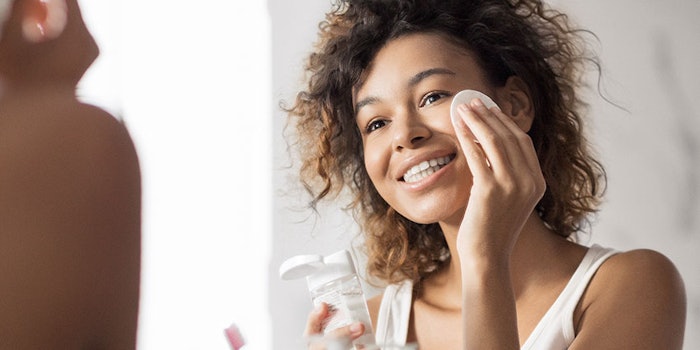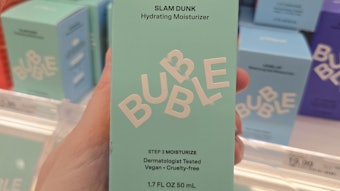
Learn more about leveraging the skin microbiome at Beauty Accelerate, our all-new product innovation workshop, taking place on October 15, 2019, in New York, where Jennifer Cookson, Mother Dirt, and Larry Weiss, M.D., Persona Biome, will lead roundtables on microbiome/cosmetic innovation. Register now at www.beautyaccelerate.com.
A person's skin microbiome can be manipulated, suggests recent research that utilized a cocktail of donor bacterial communities and tested the ability of probiotic solutions to return the microbiome of diseased skin to a healthy state.
The research, published in Microbiome, was particularly focused on Cutibacterium acnes—or C. acnes, the bacterium linked to acne vulgaris—and its strain diversity.
In the study, researchers applied probiotic solutions created from components of skin microbiomes from donors to 18 healthy volunteers aged 22-42 years. The solution was applied to eight separate areas of the skin—including the chest and along the spine—that were chosen due to high abundances of sebaceous glands.
Related: Swimmer Beware: The Ocean May Mess With Your Skin Microbiome
Volunteers' skin microbiomes then shifted to become more similar to the donor microbiome after sequential applications; these results varied depending on individual microbiome compositions and the bacterial load applied. After a few weeks, volunteers' skin microbiomes reverted to ground state with no adverse effects.
"We expect that this methodology could be used to study and modify skin microbial components and have broad implications for future therapies and research in the skin microbiome and related diseases," states the study's authors.
Read the full study at www.microbiomejournal.biomedcentral.com.









